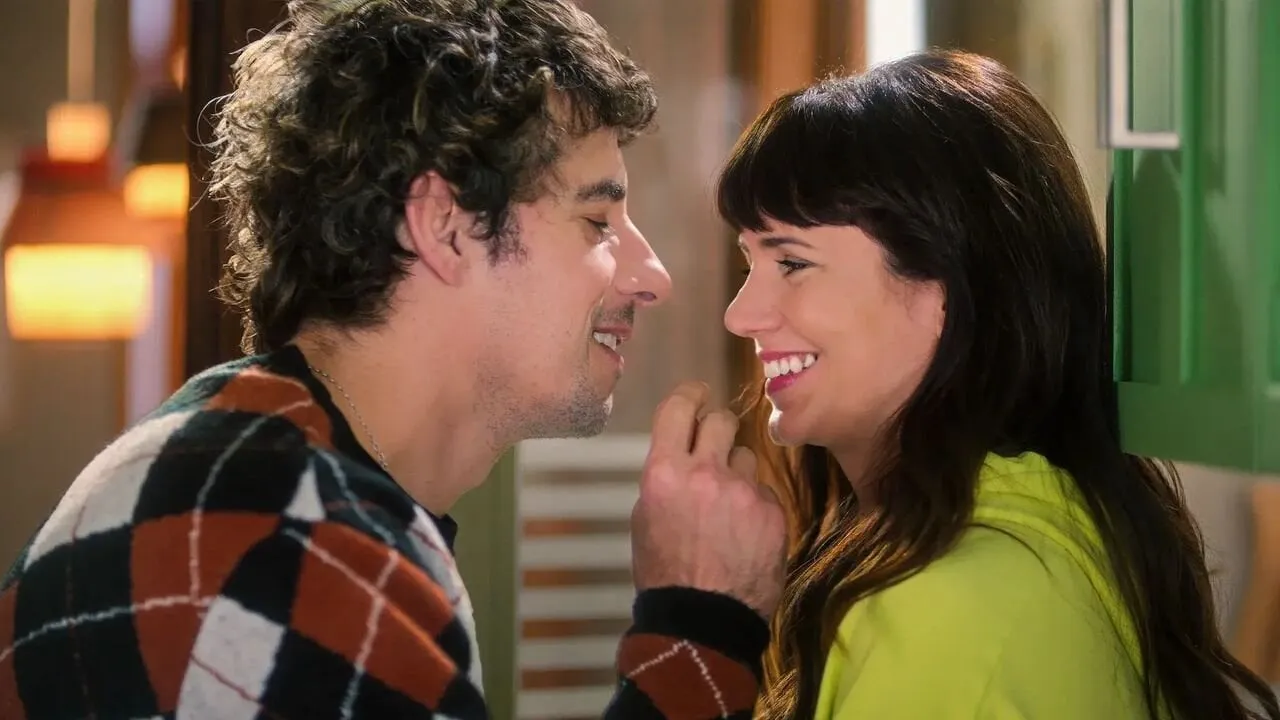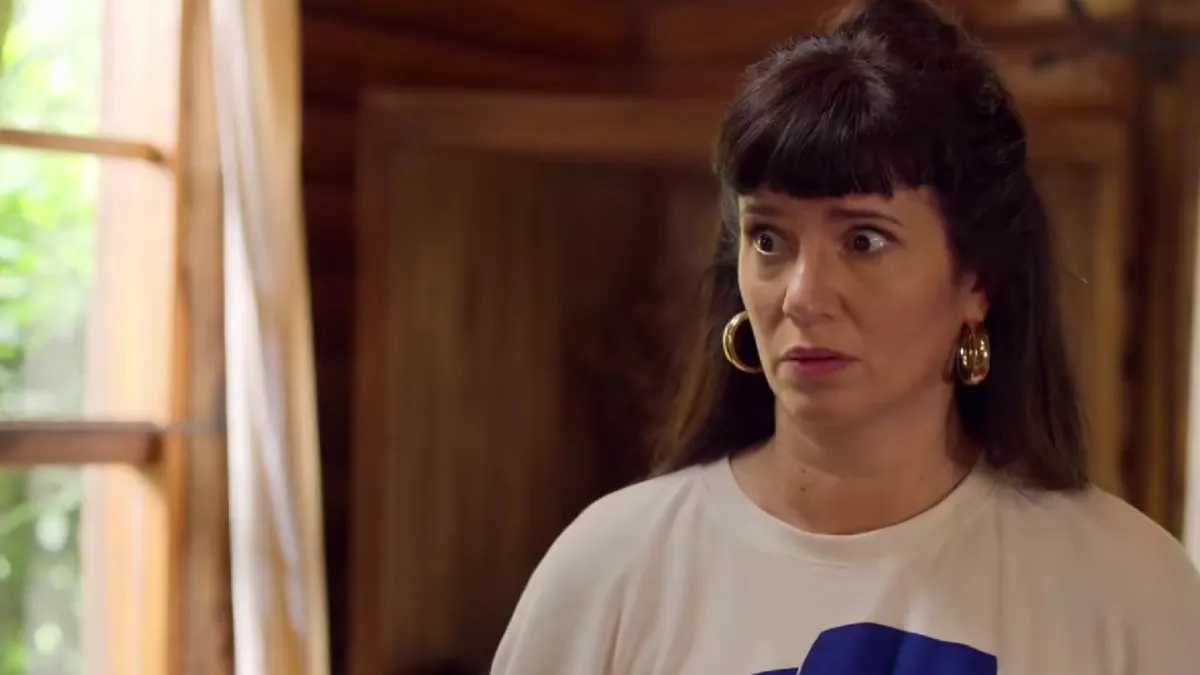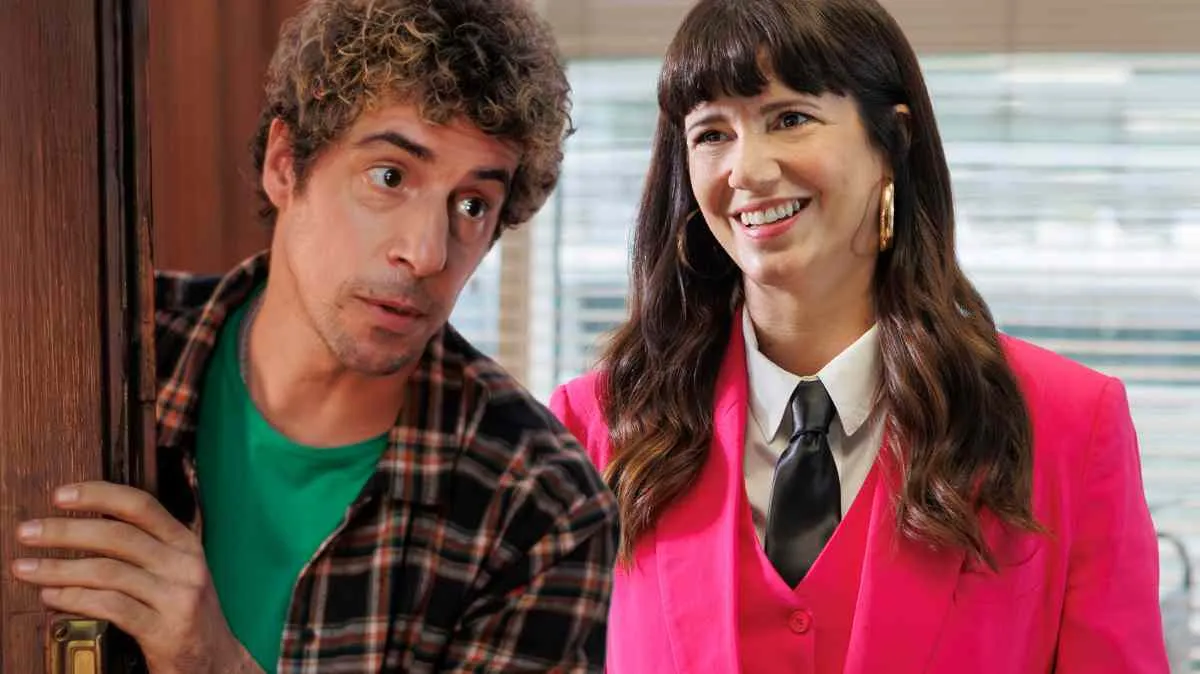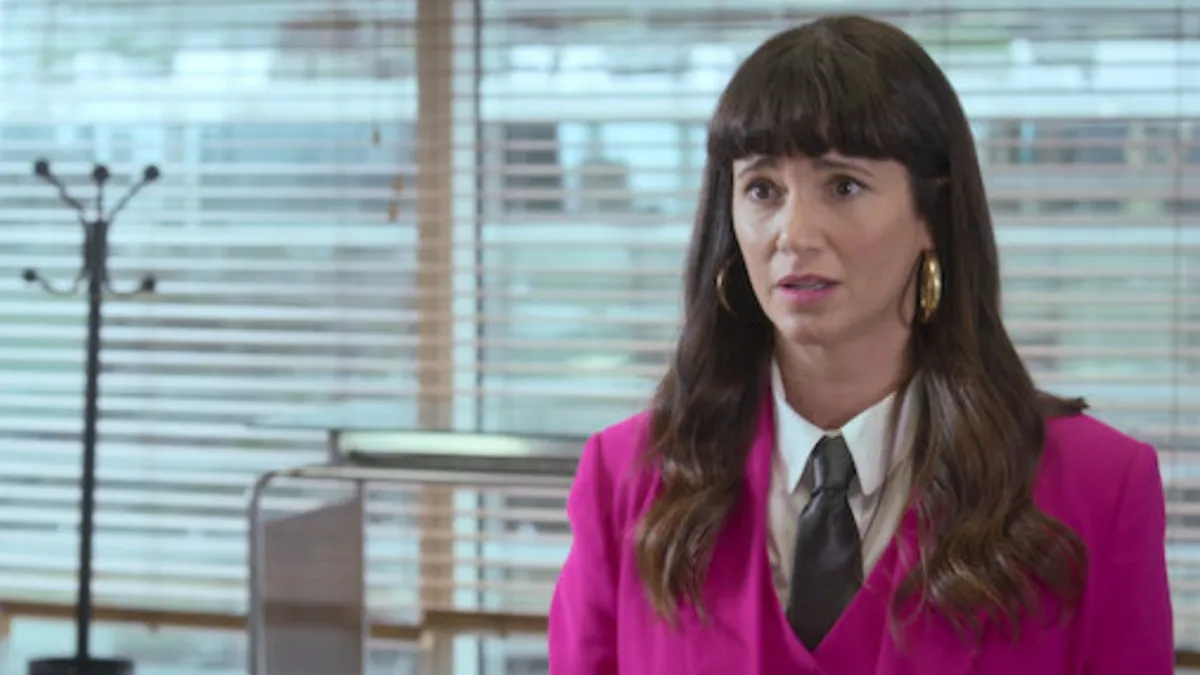Envious Season 2 emerges as an Argentinian Netflix original that portrays Vicky, a woman in her forties burdened by the weight of love, happiness, and self-worth. Set against an urban landscape of muted intensity and hidden reverie, her existence oscillates between two distinct realms: the secure, yet hollow familiarity offered by Dani, and the alluring, capricious charm personified by Matias.
This new chapter unfurls a narrative steeped in introspection and quiet despair, inviting the observer to witness a soul caught amid the clash of stability and the yearning for genuine passion. Echoes of past abandonment haunt Vicky’s every step, painting her journey with strokes of sorrow and fleeting humor.
A perceptive therapist offers a somber anchor to her turbulent emotions, while a small circle of friends, each entwined in their own subdued dramas, contributes subtle hues to this intricate portrayal of modern disquiet. The city, with its maze-like streets and brooding corners, mirrors the internal conflicts of its inhabitants.
Here, every fleeting smile conceals a whisper of melancholy, and every decision reverberates with the unspoken burden of past and present, leaving the narrative suspended in a state of uncertain possibility. The viewer is invited to ponder this fragile human condition.
Fractured Reflections: The Plot’s Metaphors and Turning Points
The opening of Envious Season 2 strikes the viewer with a scene as chaotic as a storm over a troubled soul: a congested traffic jam morphs into a series of collisions—a cascade of car accidents that mirror the inner tumult of Vicky.
This vivid sequence functions like a shattered mirror, its fragments scattering the image of a heart in disarray. Framed as a surreal dream, the episode casts light on the unsettling interplay of indecision and self-inflicted ruin, offering an uneasy glimpse at a life steeped in silent despair.
As the narrative unfolds, Vicky becomes enmeshed in the preparations for an extravagant wedding with Dani—a life marked by a steady, predictable rhythm that suffocates the embers of a deeper, more chaotic yearning. Yet, the specter of Matias hovers in every dim corner, his presence an unyielding reminder of a passion that defies the mundane order of existence.
Tension ignites at an engagement party, where repressed longings spark like stray embers. The poignant moment when her dog, aptly named Broken, makes its symbolic return serves as a quiet, rhythmic pulse amid the turmoil, compelling Vicky to face the truths she has long avoided.
Beyond Vicky, supporting figures step forward with their own muted dramas—Caro’s struggles and Lu’s silent sorrows blend into the narrative, their individual plights intertwining with Vicky’s own, lending unexpected depth and color to the unfolding story.
Episodes, succinct and brisk, propel the plot forward with a force that brooks no delay. This compact format demands that each fleeting, charged moment be absorbed with a mix of trepidation and reluctant fascination, as the storyline vibrates with a raw, unvarnished intensity that lingers in the mind.
Fractured Mirrors: The Maze of Vicky’s Soul
Vicky emerges as a troubled figure, caught in the ceaseless interplay of longing and regret. Her personal saga unfolds in somber hues, marked by wounds left by early abandonment and a recurring pattern of self-inflicted turmoil.
Every misstep serves as a quiet confession—a murmur of inadequacy that speaks to the shadowed depths of human frailty. Across this season, one senses her tentative shift: a moment when the murmurs of self-awareness begin to rise above the discord of her inner chaos.
In the midst of her personal disarray, two distinct forces cast their influence upon her fragile existence. Dani represents a world of measured order and material comfort—a secure haven that offers predictability and the solace of routine. In contrast, Matias exudes a warm spontaneity, his very presence igniting an unpredictable flame that unsettles the stagnant.
A particularly charged encounter at a festive gathering captures the essence of this conflict. In that instance, Vicky’s heart is exposed in a silent, fervent standoff between the reliable and the unforeseen—a scene heavy with the weight of unspoken truths and conflicted desire.
Supporting the central narrative, a close circle of companions leaves its mark on her unfolding drama. The calm presence of her therapist mirrors the intricate layers of her disquiet, providing a measured voice amid the storm of emotions. Friends and family, each bearing their own hidden burdens, share fleeting yet meaningful exchanges with Vicky.
Their interactions add subtle intricacies to the portrait of a woman caught between isolation and the yearning for connection. In these moments, the series poses quiet, profound questions about the nature of intimacy and the perpetual quest for self-worth, leaving us to wonder if any resolution can ever be found in the midst of such internal strife.
Whispers in the Shadows: The Duality of Passion and Pain
Existence is marked by contradictions, and the series poses a portrait of human longing through themes of jealousy, self-inflicted ruin, and tender vulnerability. Vicky, tormented by ghosts of early loss, seems compelled by impulses that tear her apart.
Her actions, a series of tragic gestures, betray a soul wrestling with unseen wounds. The tension between a desire for safe stability and a hunger for unpredictable fervor finds a voice in her choices. There is a poignant interplay between a longing for order and the chaotic pull of passion, each moment imbued with quiet despair.
Recurring images speak silently of her inner world. The metaphor of a gated community, with its deceptive walls and confined promises, echoes a prison of security that, in truth, isolates. Equally arresting is the spectral dream of a gridlocked street, where the collision of vehicles mirrors the clash of reason and reckless impulse inside her heart. These symbols cast light on her inner dissonance, each a signpost of buried anguish and unspoken desire.
Comic relief punctuates the gloom in unexpected ways. A sharp remark about marital predictability and the humorous musings on receding hair evoke brief levity, their humor emerging from the absurdity of life’s trials. A sequence of extravagant makeovers offers a visual commentary on the shifting masks we wear, exposing both fragility and defiant resilience. In these images and moments, the narrative probes the depths of human condition with an uncompromising gaze. This interplay of symbols and humor echoes a silent dialogue with despair.
Specters of the Frame: The Art of Direction and Performance
The director’s work in this series reveals a refined interplay between fleeting absurdity and the weight of human despair, using sequences that float between dreamlike abstraction and raw, visceral reality. Each scene unfurls with a quality akin to a whispered meditation on life’s fragility, as metaphor and visual allegory become integral in capturing the essence of a heart tormented by internal discord.
The cinematography, with its interplay of muted tones and stark contrasts, summons an atmosphere where despair and mirth coexist in uneasy truce. The carefully constructed sets, bathed in the dim glow of a restless metropolis, evoke a sense of isolation amid urban chaos—a quiet nod to the unspoken sorrows hidden beneath modern facades.
Griselda Siciliani inhabits the role of Vicky with a presence oscillating between desperate vulnerability and fierce, unspoken defiance. Her every gesture and fleeting glance mirror a soul locked in perpetual combat with itself, channeling the existential burden of unhealed wounds. Esteban Lamothe, portraying Matias, offers a counterpoint with a raw, unfiltered sensitivity that challenges the self-destructive cadence of his counterpart. Their interactions spark moments where tension simmers beneath the surface, illuminating the eternal conflict between order and spontaneity.
The series’ concise episode format cultivates a pace that remains both brisk and thoughtfully measured, inviting the viewer to linger on moments of unexpected intensity. Costume choices and styling serve as visual reflections of internal metamorphosis, reinforcing the notion that transformation is as much an external display as it is a profound internal reckoning. This synthesis of technical precision and raw emotion beckons an examination of art as both mirror and mender of a fractured self.
Lingering Reverberations and Unsettled Engagement
Within the gentle cadence of each episode, Envious Season 2 cultivates a narrative that oscillates between moments of wry amusement and profound introspection. The storyline unfolds as an inquiry into the heart’s own disquiet—a reflective exploration of how everyday mishaps mask deeper uncertainties and unspoken grief.
Laughter and sorrow intertwine as Vicky’s personal misadventures collide with her fragile quests for meaning, each scene offering a silent question about the balance between desire and despair.
The brief running time of each installment forges a rhythm that lures the viewer into a state of absorbed attention, where every fleeting minute sparks a quiet revelation. Charged exchanges within the evolving love triangle and unforeseen shifts in character paths punctuate the narrative, inviting the observer to witness a mosaic of human frailty and hope.
These snapshots, both transient and powerfully felt, mirror the inner reflections that surface when one contemplates the nature of passion, loss, and the weight of lingering yearnings.
Embedded within the unfolding drama is a subtle commentary on modern intimacy and the pressures imposed by unyielding expectations. The series gently prods its audience to reconsider personal experiences with affection and solitude, offering no neat answers but a space for meditative thought.
Strength lies in its deliberate pacing and the intricate interplay of personal dynamics, hinting at possibilities that continue to shift and shimmer in the space between certainty and the unknown.
The Review
Envious Season 2
Envious Season 2 provokes the viewer to confront the stark interplay of humor and existential despair with unwavering candor. Its exploration of fractured love and inner turmoil captures a raw, unsettling vision of modern human frailty. The series challenges us to reflect on vulnerability and the elusive nature of passion, all conveyed through a visual language that lingers in the mind. Scenes may waver in ambiguity, yet the series succeeds in mirroring the intricate dance between chaos and order.
PROS
- Engaging character portrayals that expose inner conflict.
- Striking visual style that casts urban spaces in somber light.
- Poetic dialogue that intertwines humor with reflective melancholy.
CONS
- Pacing may feel uneven for some viewers.
- Ambiguous plot moments can challenge casual engagement.




















































